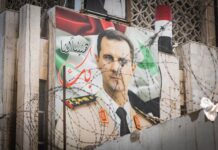The Awami League Party led by Sheikh Hasina has won a “landslide” victory in the Bangladeshi elections, granting them another term to rule a country which has been marred by political turmoil and civil unrest.
The election commission confirmed in the early hours of Monday that Hasina had won a third straight term, with the Awami League winning 287 of the 298 seats.
The main opposition Bangladesh Nationalist party (BNP), which boycotted the last general election in 2014, won just six seats in parliament.
However, the leader of the opposition alliance has described the general election as “farcical”, saying that they reject the outcome and demand a new vote.
At least 17 people were killed on voting day in Bangladesh’ first contested elections in ten years.
Many candidates pulled out of the contest on polling day, claiming the ruling Awami League had rigged the elections and intimidated voters to secure a record third consecutive term.
The opposition alliance will hold a meeting later today to decide their next move, Hossain said at a news conference a few hours after voting closed. Early results showed Hasina’s party heading for a large majority.
Subscribe to our newsletter and stay updated on the latest news and updates from around the Muslim world!
Kamal Hossain, who coordinates the alliance of opposition parties, said: “We call upon the election commission to declare this farcical election void and demand a fresh election under a neutral government.”
Members, activists and youth wings of opposing parties clashed throughout election day, which followed a violent seven-week campaign consisting of attacks against candidates and journalists and the mass arrest of opposition activists.
At least eight people died in mass brawls between party workers, and police shot another three dead, including an opposition activist who allegedly tried to attack a polling station in the southern town of Bashkhali.
Salahuddin Ahmed, a BNP candidate from Dhaka, was stabbed while he was campaigning in his constituency.
More than 100 million voters, at least a third of them under 30, were expected to vote yesterday.
The capital city of Dhaka was scarce of people after an overwhelming majority of workers returned to their villages to vote.
Vehicles were banned for everyone except election observers and journalists.
Bangladeshi authorities deployed nearly 600,000 security personnel across the country to maintain order, as well as shutting down 3G and 4G network to contain the spread of what they described as “propaganda”.
Opposition activists said the blocking of phone networks also prevented them from reporting the many irregularities in voting.
The spokesman for Bangladesh’s election commission, SM Asaduzzaman told Reuters: “Allegations are coming from across the country and those are under investigation
“If we get any confirmation from our own channels then measures will be taken as per rules.”
Opposition parties said the campaign leading up to Sunday had been the most repressed in the Bangladesh’s 47-year history. They claim more than 8,200 people who opposed Hasina were arrested and more than 12,000 were injured.
The country’s largest Islamic party, Jamaat-e-Islami, have been banned from contesting the polls since 2013, after the high court declared the group’s beliefs as “contrary to the secular principles of the constitution”.
The BNP, the most powerful force in the opposition alliance, was accused of carrying out human rights abuses during its last five-year term in power, which ended in 2009.
However, human rights groups, say Hasina’s crackdown on any political dissent has been significantly systematic and brutal The BNP’s leader, Khaleda Zia, is currently in prison after being convicted twice this year of corruption.
Yesterday, the BNP’s secretary general, Mirza Fakhrul Islam Alamgir, said a victory for the opposition was inevitable if the election was free and fair.




















